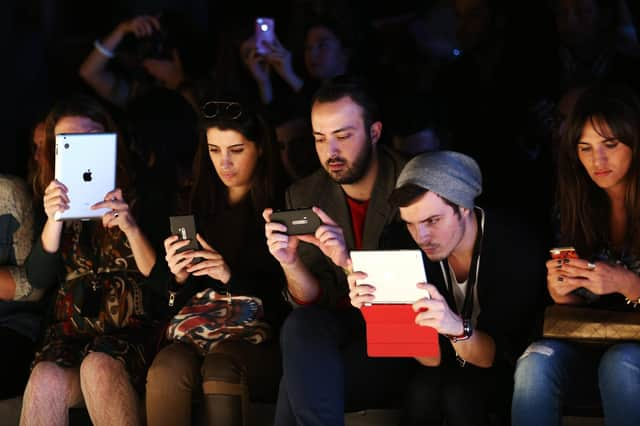My smartphone addiction is laid bare as I unexpectedly go cold turkey in supermarket – Susan Dalgety


“It must be here,” I muttered, far too loudly, as I tossed boxes of mini vol-au-vents to the side,“please let it be here”.
But my most precious possession – after my family of course – was nowhere to be seen. My iPhone, resplendent in its Perspex case with a Bowie sticker, was not in the trolley. It was not in my rucksack, nor my coat pockets. I had lost it.
Advertisement
Hide AdAdvertisement
Hide AdI cut my shopping trip short and rushed home, stopping at my local pharmacy where I had picked up a prescription earlier, to breathlessly ask, “has anyone handed in a phone?” I pleaded. “Sorry, no,” came the terrible reply.
As I contemplated life without my phone and the cost and hassle of replacing it, I felt sick. The Apple device, unleashed on an unsuspecting world only 14 years ago, contains my world.
Irreplaceable snapshots of my grandchildren as toddlers, my record collection, my Covid status, my overdraft. It is my home office, my library, my newsagent, my social life. How would I cope without it? Even for 48 hours?
I didn’t have to. I had left it on the hall table while picking up a facemask. “It’s an age thing,” a friend later messaged me.
Advertisement
Hide AdAdvertisement
Hide AdIt lay there, a piece of black plastic and glass, mocking my dependence on it. And I am not alone.
According to Ofcom, people check their phone every 12 minutes. Two in five of us look within five minutes of waking. I even check mine in the middle of the night, dependent on its archive of podcasts to keep my night terrors at bay. I am convinced my last words on this Earth will be “where’s my phone?”
It’s too late to worry whether our national obsession with smartphones is a good or a bad thing. It just is. We can no more return to a world without apps than we can live without running water. Now, where’s my phone? I need to check Twitter.
A message from the Editor:
Thank you for reading this article. We're more reliant on your support than ever as the shift in consumer habits brought about by coronavirus impacts our advertisers.
If you haven't already, please consider supporting our trusted, fact-checked journalism by taking out a digital subscription.
Comment Guidelines
National World encourages reader discussion on our stories. User feedback, insights and back-and-forth exchanges add a rich layer of context to reporting. Please review our Community Guidelines before commenting.
